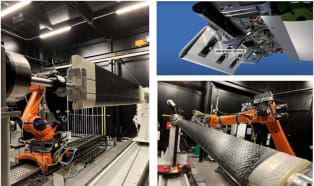
Untha shredding technology looks back on a successful 2022
Untha shredding technology GmbH, the Austrian manufacturer of industrial shredding systems, looks back on a successful 2022: The company achieved yet another record turnover in the region of 80 million Euro, set up a new subsidiary in Turkey, noted a distinct improvement of supply conditions, came up with product innovations, made progress with regard to digitalisation and hired 50 new employees.













